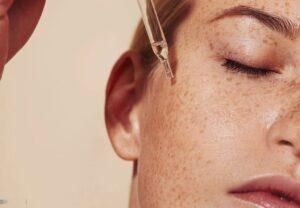
Achieving glowing skin is not just a superficial pursuit—it’s about nurturing your skin and fostering health from within. Healthy skin reflects your overall wellness and is often a result of consistent skincare practices, attention to lifestyle habits, and a deep understanding of your skin’s unique needs. With the right knowledge and commitment, anyone can achieve a luminous, youthful glow. This comprehensive guide explores essential skincare tips designed to give you that coveted radiant complexion.
Why Glowing Skin Matters
Radiant, glowing skin goes beyond aesthetics—it signals good health, confidence, and well-being. When your skin is healthy, it functions optimally by maintaining its natural barrier, staying hydrated, and repairing itself efficiently. Healthy skin also serves as your body’s first line of defense, shielding against harmful pollutants and UV rays. Additionally, a radiant complexion often correlates with youthful, plump skin, reducing the appearance of fine lines and wrinkles. Achieving glowing skin enhances your self-esteem and serves as a sign that you’re taking care of both your body and mind.
Incorporating expert-approved skincare practices can help rejuvenate your skin, maintain its health, and reverse some of the signs of environmental damage and aging. By focusing on holistic skincare—balancing internal and external care—you will create a foundation for a luminous, glowing complexion. Here are several crucial tips to help you achieve radiant, healthy skin.
1. How Gentle Cleansing Promotes a Bright Complexion
Cleansing is one of the most essential steps in any skincare routine. It’s crucial to remove impurities, dirt, and oils from your skin’s surface to prevent clogging pores and allow your skincare products to work effectively. However, harsh cleansers can strip your skin of its natural oils, leaving it dry and irritated. This can eventually lead to an imbalance, exacerbating problems like dryness, inflammation, and even acne.
Opt for a gentle, sulfate-free cleanser that is formulated for your skin type. Ingredients like glycerin and ceramides are hydrating and help to support the skin’s natural moisture barrier. Look for cleansers that are free of harsh chemicals, parabens, and artificial fragrances. These irritants can strip your skin of essential moisture and lead to redness or breakouts.
Pro Tip:
For optimal results, cleanse twice daily—once in the morning to remove any oil buildup from the night, and again in the evening to remove makeup, dirt, and pollutants. If you have sensitive skin, you may want to cleanse once a day, preferably in the evening, to retain natural oils that help protect your skin.
2. Exfoliation Tips for a Radiant Glow
Exfoliation plays an important role in achieving glowing skin. It helps to remove dead skin cells from the surface, unclogs pores, and promotes skin renewal. Regular exfoliation encourages cell turnover, which leads to smoother, softer skin and a more radiant complexion. Exfoliation also enhances the effectiveness of other skincare products, allowing serums and moisturizers to penetrate deeper into the skin.
There are two main types of exfoliants: physical and chemical. While physical exfoliants (scrubs) can be abrasive and lead to microtears in the skin if used too frequently, chemical exfoliants are often gentler and more effective for most skin types. Look for products that contain alpha hydroxy acids (AHAs) such as glycolic acid or lactic acid, which are excellent for dry or sensitive skin. Beta hydroxy acid (BHA), primarily salicylic acid, is effective for oily or acne-prone skin because it can penetrate deeper into pores and help to clear them out.
Benefits of Exfoliation:
- Smoothens skin texture
- Helps combat dullness and uneven skin tone
- Encourages better product absorption
Remember, moderation is key. Over-exfoliating can lead to irritation, redness, and a weakened skin barrier. Stick to exfoliating 1-2 times per week, depending on your skin’s tolerance.
3. Stay Hydrated: The Key to Glowing Skin Inside and Out
Hydration is a cornerstone of glowing skin. When your skin is hydrated, it appears plump, smooth, and radiant. On the other hand, dehydrated skin can look dull, flaky, and more prone to fine lines. Drinking plenty of water throughout the day ensures that your skin stays hydrated from within. A good rule of thumb is to aim for at least 8 glasses of water per day, but more may be necessary if you live in a dry climate or are engaging in physical activity.
Along with drinking enough water, using hydrating skincare products is essential. Hyaluronic acid is a powerful ingredient that draws moisture into the skin, leaving it feeling plump and refreshed. Look for serums or moisturizers containing hyaluronic acid to lock in hydration. For those with oily skin, lightweight moisturizers are the best option, as they hydrate without clogging pores.
Quick Tip:
Consider using a humidifier in dry environments or during winter to combat dehydration and maintain your skin’s moisture balance.
4. Always Wear Sunscreen
Sun protection is non-negotiable if you want to achieve and maintain glowing skin. UV radiation is one of the leading causes of premature aging, including wrinkles, age spots, and loss of skin elasticity. It also increases the risk of skin cancer. Therefore, applying sunscreen daily is the most important skincare habit you can adopt.
Use a broad-spectrum sunscreen with at least SPF 30, and apply it every morning—whether it’s sunny or cloudy. Sunscreen should be reapplied every two hours, especially if you are outdoors or sweating. Don’t forget areas like your neck, ears, and hands, which are often neglected but exposed to the sun.
Sunscreen Tips for Luminous Skin:
- Apply sunscreen as the last step of your skincare routine and before makeup.
- Opt for sunscreens with mineral filters like zinc oxide or titanium dioxide for extra protection.
- Consider wearing a wide-brimmed hat and sunglasses for additional sun protection.
5. Get Sufficient Beauty Sleep
Sleep is when your body repairs and rejuvenates itself. It’s during sleep that your skin has the opportunity to recover from daily stressors, such as pollution and UV exposure. Aim for 7-9 hours of uninterrupted sleep each night to allow your body to repair and your skin to heal.
Using a nourishing night cream or sleeping mask can further enhance the benefits of your skin’s nightly repair cycle. Look for products that contain ingredients like retinol (for skin renewal), peptides (for collagen production), and antioxidants (for skin protection).
Sleep Boosters to Enhance Your Skin’s Glow:
- Consider investing in a silk pillowcase to reduce friction on your skin, preventing the formation of fine lines and wrinkles.
- Establish a consistent bedtime routine to help improve sleep quality. Try reading or practicing relaxation techniques before bed.
6. Healthy Eating Habits for a Vibrant Complexion
What you eat directly influences the health of your skin. A diet rich in vitamins, minerals, and healthy fats supports skin health and promotes a radiant complexion. Some of the best foods for glowing skin include:
- Berries: Packed with antioxidants like vitamin C, which help to fight free radicals and promote collagen production.
- Leafy Greens: High in vitamins A, C, and K, which support skin repair and reduce inflammation.
- Fatty Fish (such as salmon, mackerel, and sardines): Rich in omega-3 fatty acids, which help maintain your skin’s elasticity and moisture.
- Nuts and Seeds: Excellent sources of vitamin E, which protects the skin from oxidative stress.
On the flip side, foods high in refined sugars and processed foods can contribute to inflammation and breakouts, leading to dull skin.
7. Stress Management for a Clear and Radiant Complexion
Chronic stress is one of the biggest contributors to skin issues. When you’re stressed, your body produces cortisol, a hormone that can lead to inflammation, breakouts, and skin sensitivity. Managing stress effectively can lead to significant improvements in the appearance and health of your skin. Incorporating stress-reducing practices like meditation, yoga, or deep breathing exercises into your daily routine can help.
Self-care activities, such as facial massages or indulging in aromatherapy with calming essential oils, can also promote relaxation and help enhance skin health.
8. Consistency is Key
The key to glowing skin lies in consistency. Sticking to a skincare routine that is tailored to your skin type and needs will ensure long-term benefits. It’s important not to switch products too frequently, as your skin needs time to adjust and show the effects of new ingredients. Over time, your skin will start to show signs of improvement, and the results will be well worth the wait.
A basic skincare routine should include:
- A gentle cleanser
- A hydrating toner (optional)
- A treatment (serum or spot treatment)
- A moisturizer
- Sunscreen (in the AM only)
9. Explore Professional Treatments
While a solid at-home skincare routine is essential, professional treatments can complement your efforts and address more stubborn skin concerns. Consult a dermatologist or licensed esthetician for advanced treatments such as:
- Chemical Peels: Help with exfoliation, pigmentation, and fine lines.
- Microdermabrasion: Smooths the skin by removing dead cells and improving texture.
- Laser Therapies: Target specific concerns like acne scars, hyperpigmentation, and wrinkles.
These treatments can help boost your skincare results, especially if you are dealing with persistent skin issues.
10. Exercise Regularly for Healthy, Glowing Skin
Regular physical activity promotes blood circulation, which delivers oxygen and essential nutrients to your skin. Sweating during exercise also helps detoxify the body by flushing out impurities. Consistent exercise improves your overall health, which is reflected in your skin’s appearance. However, always remember to cleanse your skin after workouts to avoid clogged pores and breakouts.
Quick Tip:
To prevent dehydration, apply a lightweight, non-comedogenic moisturizer before exercising, especially if you work out in a dry or air-conditioned environment.
11. Embrace Sustainable and Natural Products
The beauty industry is shifting toward sustainability, and you can be part of this movement by embracing eco-friendly beauty products. Natural ingredients like aloe vera, chamomile, and coconut oil are not only gentle on the skin but also on the environment. Sustainable brands use biodegradable packaging and promote cruelty-free practices, which can be a reflection of your ethical values.
Avoid products that contain synthetic fragrances, parabens, and harmful chemicals, as these can irritate your skin and contribute to long-term damage. Our blog has a cornerstone content article called ‘ethical-skincare-why-it-matters-and-how-to-make-sustainable-choices.
12. Stay Educated and Empowered
Staying informed about skincare trends, ingredients, and best practices is crucial. Understanding your unique skin type and needs empowers you to select the right products and treatments. Not all skincare trends work for everyone, so it’s important to educate yourself and choose what’s best for you.
Final Thoughts
Achieving glowing skin is a holistic journey that requires dedication, the right products, and healthy lifestyle habits. By following these expert tips and making small adjustments to your daily routine, you can unlock your skin’s natural radiance. The process may take time, but with consistency, your skin will thank you for the care and attention.
Start your journey to glowing skin today—because healthy, radiant skin is always in style!

